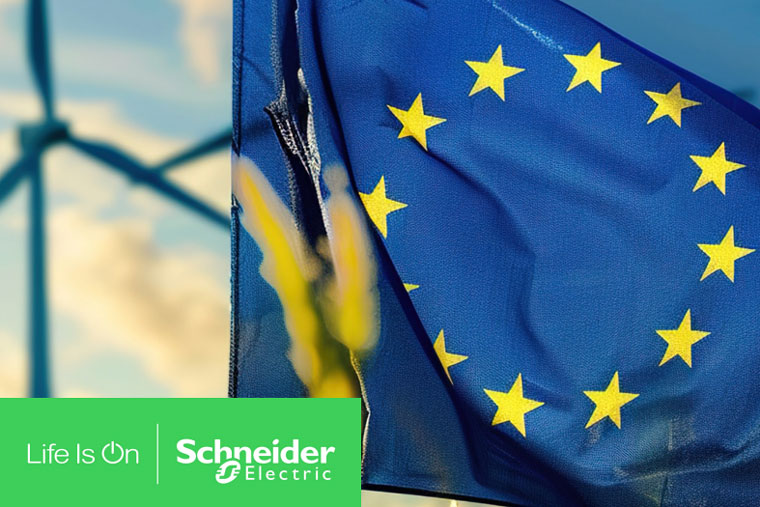COPENHAGEN, Denmark — Schneider Electric, a global energy technology leader, launched a new research report highlighting the role electrification must play in Europe’s future.
Currently, the electrification rate in Europe is just 21%, a figure that hasn’t changed in the last decade and is 10% behind China, where rapid electrification is taking place. At the same time, the cost of residential energy use in the EU is 0.27 Euro per kWh. In the U.S., that figure is 0.15, and China comes in at 0.08 Euro per kWh. This puts the price of everyday activity for every EU citizen three times higher than that of those in China.
The report, “Europe energy security and competitiveness – supercharging electrification,” reveals Europe could save €250 billion [USD 290.38 billion] per year by 2040 through accelerated electrification. The energy trilemma – balancing affordability, security, and sustainability – persists with high dependency on fossil fuel imports, keeping costs high and sustainability targets at a distance. That said, emissions in the EU have dropped 37% since 1990 levels.
With electrification as the solution to the energy trilemma, the research notes that the pace and progress of electrification in Europe vary significantly from country to country. This is due to differences in infrastructure, policy, market maturity, and consumer adoption. Some nations, such as the Nordics, have made notable advances in sectors like transport and buildings, while others are just beginning to scale up their efforts. Southern European countries often show higher rates of building electrification, whereas Western and Central Europe are seeing increased investment in industrial electrification and prosumer initiatives. For Europe to remain competitive on the international stage, the continent needs to speed up progress to a more electrified world.
The report identifies several critical policy levers that must be pulled. First, policymakers must reduce the price gap between electricity and natural gas by phasing out fossil fuel subsidies and reforming energy taxation to incentivize clean energy use.
Accelerating financing is equally vital, including streamlining access to investment, offering targeted incentives (especially for SMEs), and directing emission trading schemes revenues and innovation funds toward electrification projects.
The report also highlights the importance of creating robust local markets, which include mandating electrification in new buildings and industrial processes, supporting rapid deployment of heat pumps and electric vehicles, and fostering prosumer initiatives.
Finally, fostering local development through sustainable public procurement, fast-tracking standardization, and prioritizing support for European innovation and manufacturing will ensure that the economic and employment gains of electrification are realized across the continent.
Tagged with Schneider ElectricCommenting on the research, Laurent Bataille, Executive Vice President, Europe Operations at Schneider Electric said, “This landmark research provides one of the most comprehensive analyses to date of Europe’s electrification potential and the policy actions needed to realize it. It underscores that electrification is vital—not only for achieving our climate ambitions, but for driving economic growth, energy independence, and industrial competitiveness. Europe must break free from electrification stagnation urgently. The technology is here, ready to deploy. Now, policy must incentivize, and businesses must drive implementation to unlock the economic and environmental gains we need to see today.”






